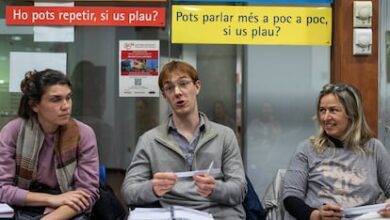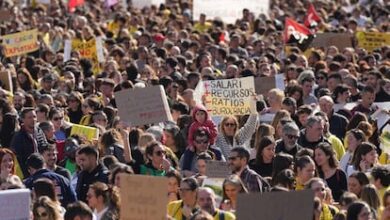
On Friday evening, around eighty people gathered in the heart of Seville near the Santa María la Real church. The reason was the cancellation of a planned mass in memory of deceased members of the Falange. Organizers and participants, many of them young, were unable to enter the church—the doors were locked. Instead of a ceremony inside, the attendees held their own event right on the street.
The participants did not hide their views: slogans echoing the Franco era were chanted, and the well-known song Cara al Sol was performed. Many raised their hands in the characteristic salute, and references to the Spanish Civil War, as well as criticism of current politicians and memory laws, were frequent. At one point, sharp remarks and accusations against the church for refusing to support the tradition were voiced.
Police maintained order with several vans positioned on both sides of the street. Despite the emotional atmosphere, there were no major incidents. The only episode occurred when a local resident doused the crowd with water as they began chanting slogans. Notably, there were no banned symbols at the event: participants limited themselves to Falange flags, as the party is officially registered.
Public reaction and possible consequences
The event sparked a reaction among public organizations focused on historical memory. Representatives of memorial associations and political movements have already announced their intention to appeal to state authorities, demanding an official response to what happened. They argue that such public demonstrations may violate current legislation on memory and human rights.
It remains unclear who made the decision to close the church—the order’s representatives or the authorities. However, the organizers of the event expressed their dissatisfaction and promised to continue their activities despite the restrictions. At the end, participants laid flowers at the entrance to the church, emphasizing that they have no intention of abandoning their traditions.
Context: memory laws and public sentiment
In recent years, debates over the interpretation of twentieth-century events and the role of various political movements have intensified in Spain. Memory laws adopted at national and regional levels prohibit glorification of the dictatorship and require respect for the victims of repression. However, such events show that tensions and disagreements on these issues persist in society.
The events in Seville served as a fresh reminder that historical disputes still stir strong emotions and can bring people into the streets, even decades after the end of the civil war.












